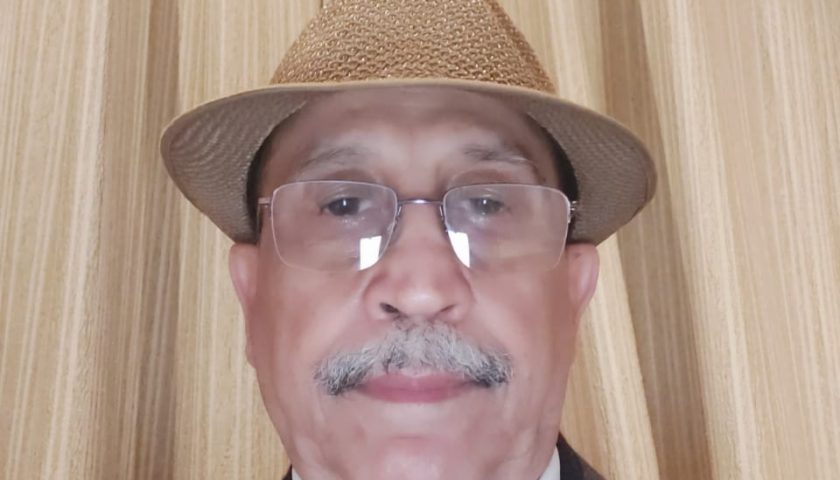
Most people would lose their persona if they are dealt a double whammy by Nature. A double whammy twice over can be devastating. Destitute, Disabled, Dalit Daughters of India (DDDD). Ever heard of an outstanding disabled Dalit, lady political leader, or Administrator? Or even a sportsperson of repute? No. We have Olympic gold medalists specially-abled male and female sportsperson but none are Dalit females. Ever wondered why? Nature has dealt a double whammy, twice over to them. They are born to be cursed, in fringe areas of villages or slums. More about that later.
Dalits form about 17% of our population. They are provided reservations in education and jobs. They also get scholarships for higher studies and many other benefits, depending on their state of residence. A number of Dalits are well off and generations of them are either political leaders or in the elite Administrative services.
People with Disabilities (PwD) – 2.2% or roughly 3 crores of our population is disabled. As a percentage of our population, more Dalits are disabled as compared to others. As per rough estimates, there are 1 crore to 1.4 crore Dalits who are disabled. Why Dalit families have more disabled persons is easy to understand. They are, in general, poorer, live in unhygienic conditions, and usually do not have access to the wells used by upper castes. Of course, conditions are changing but slowly. Similarly, their head of the family is either illiterate or semi-literate and chances are that their children are not fully immunized. Further, they cannot seek/ afford good quality medical aid for their sick children. Thus, the chances of disabilities increase. Female child discrimination adds insult to injury amongst Dalits. As against more upper-caste boys being disabled than girls, it is the other way round in Dalits. More Dalit girls are disabled as compared to boys.

Education. As per a UNESCO report, 75% of PwD are not enrolled in school at the age of 5 years. Between ages 5 and 19 years, 25% PwD have never been to school. A Caste-wise breakdown is not available. It is no secret that DDDD are seldom seen in higher education institutions or government jobs. Many NGOs working in this field report the attitude of parents, fellow school students, especially of upper caste, and the school teachers for lesser enrolments and early dropouts of the DDDD. The future of these DDDD is quite bleak. They are forced to help the family with household chores, in whatever manner they can. Once they grow up a little, some who can work a bit are forced into child labor. Often, they are physically or sexually abused, both at home or at work. Police complaints from their side are almost impossible to register unless an NGO takes them in their fold.
Government schemes. The government has put in large number of schemes for their benefit as under:
- Persons with Disability Act 2016. A disability certificate is required to be made first, to avail any benefit. Recently a UDID Card (unique disability identification card) also called Swavlamban Card, much like the Aadhar card has been started which is fed in the database.
- Right to Education Act, for providing free education to all school children. They are also provided free books, school uniforms, school bags, and one hot meal a day.
- Scholarships and hostel fees for college studies.
- Reservation in colleges.
- Vocational training for women and skill development by NGOs using government funds.
- Reservations in jobs for PwD.
- Free medical treatment facilities under PM Swasthiya Bima yojana.
- Reservations for women and for the SC/ ST in elections of various categories of public posts.

Lacunae in the system: Despite all these programs their situation is not improving, why?
- Only around 25% of the PwD have registered in the UDID.
- Fruits of the government schemes are not easily available to the DDDD because the heads of these families are either illiterate or semiliterate who are not aware of schemes
- Most of these families neither have bank accounts nor are having smartphones making it difficult for them to register/ take part in these schemes.
What can be done?
By Us: There is a lot that most people who read this article can do. Firstly, we need to be aware of the DDDD in our neighborhood – children of maids, chowkidars, persons who collect old newspapers, or laborers who come for whitewashing or road repairs. Secondly, we need to know more about the local NGOs working in these fields. Thirdly, we should make an effort to convince the poor Dalits to make use of the government schemes and seek the help of NGOs to assist them in this regard. Time permitting, they can be taken to hospitals for getting a Disability certificate, UDID card, Aadhar card, and a Bank Account.
Government : The government also needs to bridge the gap between PwD act and the RTE Act so that the poor Dalit children get enrolled in schools at the right age. Also, they should hold special sessions of school teachers on empathy for the disabled Dalits.
Rather than increasing the number of castes and religions in reservations, scholarships, and doles, these benefits should be for the extremely poor and disabled. The DDDD will reap benefits and harmony amongst the castes will be much more.


Maj Gen Krishan Chauhan is a second-generation army officer. He studied in Sainik School Kapurthala, graduated from IG Medical College, Shimla and did his MD from AFMC/Pune University. He has served in the Army Medical Corps for 36 years and retired as the Addl DGMS army. He is an avid marathon runner and a writer. He first wrote articles for children in The Young Chronicles. Later, he started writing his own blog as Genkris, on WordPress where over 25 articles on various subjects can be accessed.



